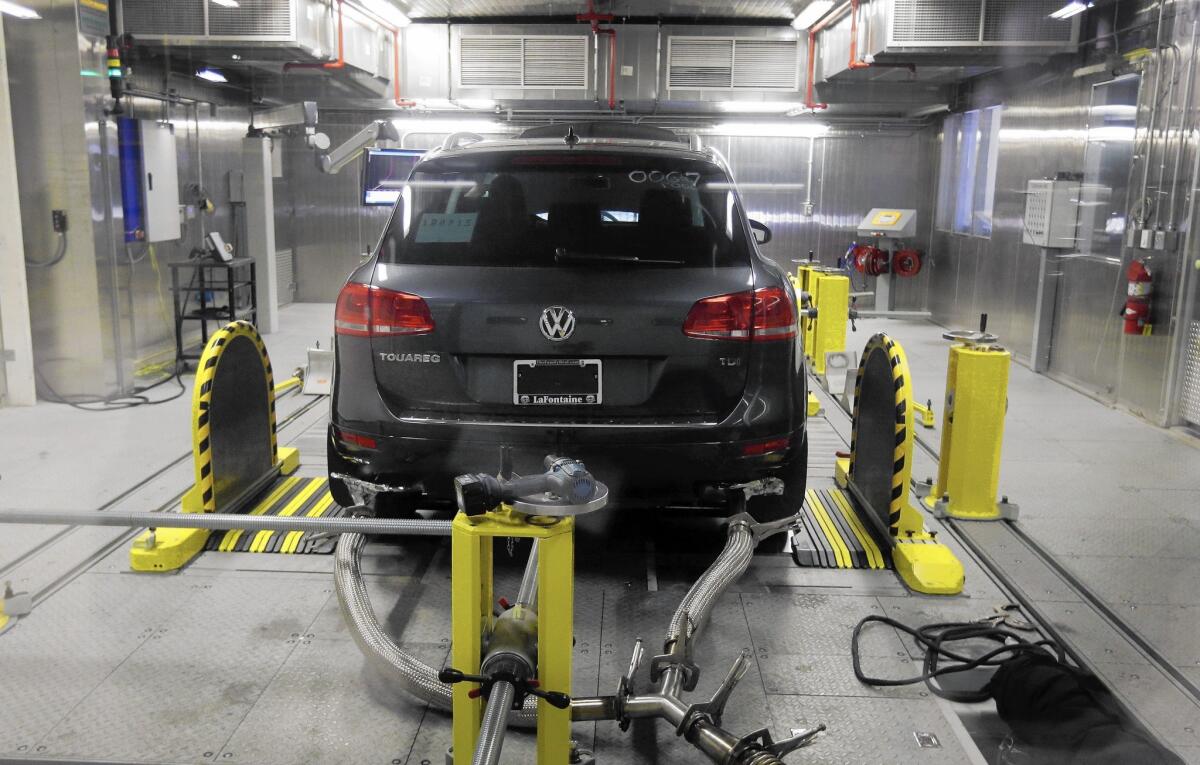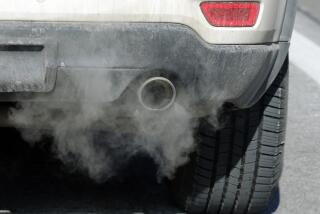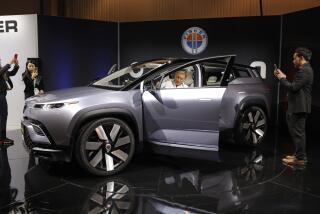Porsche caught up in scandal at VW

The widening Volkswagen emissions-test cheating scandal has enveloped a wide array of Porsche and Audi six-cylinder diesel vehicles as California and federal regulators levied fresh charges that the automaker used software to hide pollution.
Monday’s revelations come as Porsche’s former chief executive — just promoted to clean up the mess at parent company VW — struggles to limit the financial damage and regain consumer trust. VW appointed Matthias Mueller after the company’s market value fell by half and longtime CEO Martin Winterkorn resigned in disgrace.
Regulators accuse the automaker of using the same tactic with six-cylinder engines as it has admitted using in about 11 million four-cylinder diesels worldwide — software that changes engine performance during emissions testing.
“VW has once again failed its obligation to comply with the law to protect clean air for all America,” said Cynthia Giles, assistant administrator for the Environmental Protection Agency’s Office for Enforcement and Compliance Assurance.
EPA officials declined to say whether VW officials lied about the six-cylinder vehicles, but Giles said the software was discovered through joint testing by federal and California officials. The state has long led the nation in strict pollution standards and consumer purchases of low-pollution vehicles.
The automaker denied installing “forbidden” software in the six-cylinder vehicles, saying the EPA had it wrong this time.
“No software has been installed in the 3-liter V6 diesel power units to alter emissions characteristics in a forbidden manner,” the company said in a statement, adding that “Volkswagen will cooperate fully with the EPA” to “clarify this matter in its entirety.”
The new EPA “notice of violation” includes the 2014 VW Touareg, 2015 Porsche Cayenne and 2016 Audi A6 Quattro, A7 Quattro, A8, A8L and Q5. Other models and years, including more 2016 vehicles, may also be affected, the EPA said.
Audi and Porsche are VW-owned brands. The new infractions add an additional 10,000 luxury vehicles to the 482,000 VWs and Audis already cited by the EPA.
The distinction between the four- and six-cylinder engines is not just one of size. The 2.0-liter, four-cylinder engine was engineered and manufactured by VW at its Wolfsburg, Germany, home base. The 3.0-liter, six-cylinder engine is the work of Audi, the VW Group subsidiary operating out of Ingolstadt, Germany.
Porsche said it was “surprised to learn this information,” especially the part about its popular Cayenne SUV being included in the sweep.
“Until this notice, all of our information was that the Porsche Cayenne diesel is fully compliant,” the company said.
Giles said the EPA determined that VW had designed and installed software that would enable the 3.0-liter diesel engine to run on “normal mode” and something called “temperature conditioning” — the cheating mode.
The software could detect when the vehicle’s emissions were being tested, but would then revert to normal mode “exactly one second” after the testing ended, Giles said.
SIGN UP for the free California Inc. business newsletter >>
In “temperature conditioning,” the vehicle tested below the EPA’s pollution limits. In “normal mode,” the vehicles spewed up to nine times the legal limit of noxious gases.
Audi said that the “temperature conditioning” mode is designed to reduce pollutants — not evade emissions testing — and should not be confused with the software gimmick for which VW has already apologized. The so-called AECD software reduces emissions in certain conditions, like ignition, when the engine is relatively cold, Audi said.
“This is not the same thing as the defeat device named in the initial 2.0-liter diesel notice from EPA,” said Audi corporate communications manager Brad Stertz. “Our engineers need to find out what data the EPA came across, and what conditions they were discovered under.”
The EPA said that VW’s actions — not its motives — were in question.
“VW’s software on these vehicles includes one or more Auxiliary Emission Control Devices (AECD) that the company failed to disclose, describe and justify in their applications for certificate of conformity for each model,” the agency said. “An AECD designed to circumvent emissions tests is a defeat device.”
The revelations may cause further credibility issues for VW and its subsidiaries. Company executives previously have insisted the diesel cheating scheme was not corporate policy but the work of a few rogue individuals.
“This was a couple of software engineers who put this in for whatever reason,” Michael Horn, VW’s U.S. chief executive, told a House subcommittee hearing last month. “To my understanding, this was not a corporate decision.”
The expansion in the scandal from VW to multiple vehicles sold by Porsche and Audi, said Kelley Blue Book analyst Karl Brauer, “casts a darker shadow” on the whole corporation.
“It also makes any past claims of ‘a limited number of people’ involved in the deception appear even more outrageous,” Brauer said.
It may also further slow the adoption of diesel technology in the U.S., an analyst said.
“This will continue to be a roadblock for the continued growth of diesel in the U.S. market,” said Eric Lyman of the automotive data company TrueCar. “The addition of multiple nameplates may confuse consumers into associating this scandal with all diesel powertrains.”
Other manufacturers selling diesel engine cars in the U.S. include Mercedes-Benz and BMW. Both issued statements Monday reminding consumers they had not been implicated by the EPA.
EPA officials said they are testing diesel vehicles from multiple brands to ensure they are not manipulated to evade U.S. pollution controls. Those tests have not yet been completed, officials said.
One Porsche dealer said he wasn’t expecting any big fallout from the new EPA charges. Mark Umutyan, general manager of Rusnak Pasadena Porsche, said he hasn’t had any inquiries yet from customers about the diesel Porsche Cayenne.
“There’s really been no conversation from the customer base regarding concerns about our diesels,” he said.
Danny McKenna owns Surf City VW in Huntington Beach, McKenna VW in Cerritos, along with Porsche and Audi dealerships in Norwalk. He believes future sales won’t suffer because the company will ultimately “do the right thing” for owners of the affected diesel vehicles.
“I don’t think they’re going to leave anybody hanging,” he said.
Times staff writer Samantha Masunaga contributed to this report.
ALSO
Head of money-losing L.A. County Fair Assn. made nearly $900,000 in total compensation
Slash parking fines? L.A. City Council to weigh proposals
Airbnb fight: San Franciscans ponder housing, housing and housing on ballot







